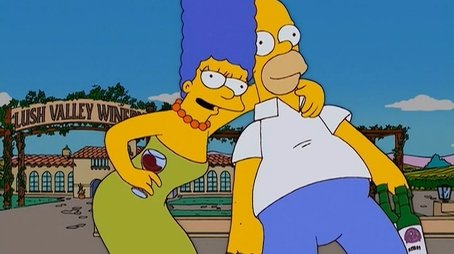
Sorry, we have not watched this yet.

Homer and Marge's bond becomes stronger when they both get drunk on wine, but soon the bond unravels when Homer blames Marge for crashing the car and Marge gets sent to rehab. Meanwhile, Bart and Lisa complain to Randall Curtis (a George Lucas-esque science fiction movie director) about his latest film.
Sorry, we have not watched this yet.